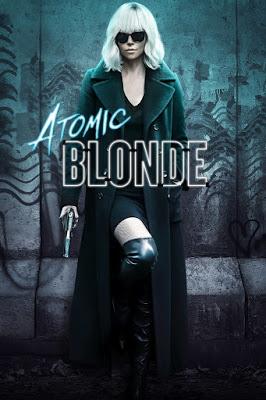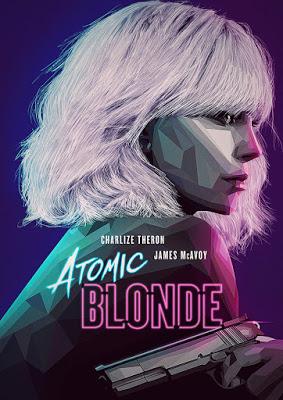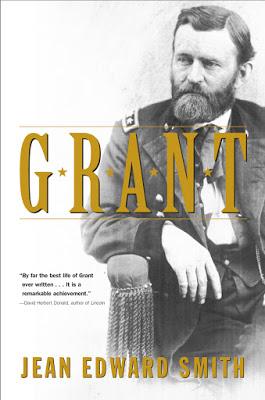 I don't know about all of you, but lately Hollywood and the film industry in general has been releasing very dark films lately, with a lot of anti-hero types in leading roles. I am going to make some parallels where this has happened before in history; where film became the manifestation of the grim reality occurring in the world. This happened before in days of the Weimar Republic before the rise of Nazism and during the 1970's in the United States. During both periods of time strife and crises abounded and everything appeared rather hopeless and dark really. Now clearly, Germany really did experience severe moral decline under Nazi leadership, although their military and economy flourished, whereas in the U.S. to many people I think they believed life to be more truly darker than it was, but by the 1980's that malaise was beginning to disappear. Seriously look at the different kinds of films released during the 1970's in the U.S. and the 1920's in Germany; it's quite interesting. Atomic Blonde definitely ranks in the grisly and dark, even though it is depicted during 1989 as the Berlin Wall is in the process of coming down. I had actually watched Blade Runner 2049 recently, but disliked it so much and considered far worse than its predecessor that I won't even bother reviewing it. Atomic Blonde is about an MI6 agent who goes to East Berlin to find a "list" containing secret information about contacts and agents of all the major world players (sound slightly familiar). Anyways, she runs into some difficulty and gets all James Bond like with some Jason Bourne in there. Charlize Theron plays the protagonist; Lorraine Broughton, and you couldn't have asked for a more perfect individual with which to play the tough British agent who is both lovely and lethal. As a character, she plays herself very difficult to read, which is good, but she does have some empathy and passion, but buried quite deep. James McAvoy plays her spy compatriot, David Percival, who is the station chief for East Berlin. I found him obnoxious, annoying, useless, and essentially nothing likable as a character. Actually most of the films he is in I don't care for save for the X-Men films. John Goodman plays a top dog with the CIA helping out the British with their operation, and as always delivers a solid performance; it would have been great to see him have a larger role. Sofia Boutella plays a young French agent who caught in the middle of essentially a spy war, and although I didn't care for her role she did provide this naive, youthful perspective against the worn veterans and order of things. Bill Skarsgard played a contact of some sort for Charlize Theron's character, and he did quite well, but once again he was relegated to a very small role which was a shame. Basically, this is truly a one woman show; you watch it to Charlize Theron in action, and that's about it.
I don't know about all of you, but lately Hollywood and the film industry in general has been releasing very dark films lately, with a lot of anti-hero types in leading roles. I am going to make some parallels where this has happened before in history; where film became the manifestation of the grim reality occurring in the world. This happened before in days of the Weimar Republic before the rise of Nazism and during the 1970's in the United States. During both periods of time strife and crises abounded and everything appeared rather hopeless and dark really. Now clearly, Germany really did experience severe moral decline under Nazi leadership, although their military and economy flourished, whereas in the U.S. to many people I think they believed life to be more truly darker than it was, but by the 1980's that malaise was beginning to disappear. Seriously look at the different kinds of films released during the 1970's in the U.S. and the 1920's in Germany; it's quite interesting. Atomic Blonde definitely ranks in the grisly and dark, even though it is depicted during 1989 as the Berlin Wall is in the process of coming down. I had actually watched Blade Runner 2049 recently, but disliked it so much and considered far worse than its predecessor that I won't even bother reviewing it. Atomic Blonde is about an MI6 agent who goes to East Berlin to find a "list" containing secret information about contacts and agents of all the major world players (sound slightly familiar). Anyways, she runs into some difficulty and gets all James Bond like with some Jason Bourne in there. Charlize Theron plays the protagonist; Lorraine Broughton, and you couldn't have asked for a more perfect individual with which to play the tough British agent who is both lovely and lethal. As a character, she plays herself very difficult to read, which is good, but she does have some empathy and passion, but buried quite deep. James McAvoy plays her spy compatriot, David Percival, who is the station chief for East Berlin. I found him obnoxious, annoying, useless, and essentially nothing likable as a character. Actually most of the films he is in I don't care for save for the X-Men films. John Goodman plays a top dog with the CIA helping out the British with their operation, and as always delivers a solid performance; it would have been great to see him have a larger role. Sofia Boutella plays a young French agent who caught in the middle of essentially a spy war, and although I didn't care for her role she did provide this naive, youthful perspective against the worn veterans and order of things. Bill Skarsgard played a contact of some sort for Charlize Theron's character, and he did quite well, but once again he was relegated to a very small role which was a shame. Basically, this is truly a one woman show; you watch it to Charlize Theron in action, and that's about it. Now, this film was quite terrible. David Leitch (directed Deadpool 2) had a very interesting idea about the setting and style of the film, but the narrative just came out as this formless, confusing and utterly boring plot. Kurt Johnstad wrote the screenplay based off the graphic novel series, and it needed a lot of help (this is an understatement). As a point of comparison, what makes Game of Thrones such an incredibly successful and well liked series; the writing. This one facet of the filmmaking process is what is sorely and nearly consistently lacking in films currently being released. Tyler Bates composed the film score, but it wasn't anything remotely memorable. The cinematography by Jonathan Sela had potential, but it was too rough around the edges, and not really that dynamic. The costume design by Cindy Evans was amazing; Charlize Theron looked incredible all of the time with that gritty elegance of the 1980's. There were basically only three things I liked about the film: Charlize Theron, it had a great soundtrack of 1980's music that worked so well with what was happening on-screen, and lastly the ending was quite good I have to say. I was definitely surprised. There was decent action, and the last action sequence was really, really intense and one of the better spy action bits that I have seen on screen that comes off as very realistic; makes me not want to be a secret agent or spy. This isn't a fun, or thoughtful film; in succinct terms it fulfills Freud's two basic drives: sex and violence. And that's it. If that is your cup of tea, then by all means have at it, if not then I'd stick to something with substance in it aside from dark, gritty violence and hyper-sexualized, destructive human carnage.
Now, this film was quite terrible. David Leitch (directed Deadpool 2) had a very interesting idea about the setting and style of the film, but the narrative just came out as this formless, confusing and utterly boring plot. Kurt Johnstad wrote the screenplay based off the graphic novel series, and it needed a lot of help (this is an understatement). As a point of comparison, what makes Game of Thrones such an incredibly successful and well liked series; the writing. This one facet of the filmmaking process is what is sorely and nearly consistently lacking in films currently being released. Tyler Bates composed the film score, but it wasn't anything remotely memorable. The cinematography by Jonathan Sela had potential, but it was too rough around the edges, and not really that dynamic. The costume design by Cindy Evans was amazing; Charlize Theron looked incredible all of the time with that gritty elegance of the 1980's. There were basically only three things I liked about the film: Charlize Theron, it had a great soundtrack of 1980's music that worked so well with what was happening on-screen, and lastly the ending was quite good I have to say. I was definitely surprised. There was decent action, and the last action sequence was really, really intense and one of the better spy action bits that I have seen on screen that comes off as very realistic; makes me not want to be a secret agent or spy. This isn't a fun, or thoughtful film; in succinct terms it fulfills Freud's two basic drives: sex and violence. And that's it. If that is your cup of tea, then by all means have at it, if not then I'd stick to something with substance in it aside from dark, gritty violence and hyper-sexualized, destructive human carnage. On a higher note, I just recently completed reading the biography on former U.S. President Ulysses S. Grant written by Jean Edward Smith called "Grant". He was the 18th President of the United States of America. He was president from 1869-1877, he was proceeded by Andrew Johnson and followed by Rutherford B. Hayes. He was also the finest Union General during the U.S. Civil War, and the equal of Robert E. Lee. Without Grant, it is most likely that there would be two separate countries rather than just one. Grant was an astounding man, but he was only successful in life when he was in the military or president; every other time he ended up destitute due to making really poor choices. The lowest was right before the war when he was selling firewood in Georgia I believe to make ends meet; it was actually future Confederate General Longstreet who gave him money to help him out. These two men were good friends before the war, gentlemen to each other during the war, and good friends after the war. Grant's strategy was a lot like Patton's; advancing constantly, never giving the enemy a chance to retreat, dig in and defend. It is very untrue and unfortunate that he often depicted as a drunkard and a strategic incompetent who won merely because of the sake of numbers. He was a tactical genius, understood the nature of war and more importantly how to effectively lead a large organization (something that is sorely lacking these days). Him and Abraham Lincoln were the bulwark that held the nation together at that dark time, and were the ones that pushed so fervently for African American freedom and full equal rights. There is so much to write about this great man, but here are some things that stood out to me. During the Mexican-American war is where the officers of the Civil War learned war, but all fought on the same side and were good friends; this never ended even during that harsh conflict many years later. They were gentlemen to each other during and after; it was a breath of fresh air to read about, that even though enemies, there was not vicious enmity after the war or even during. It's a shame politicians cannot behave this way; life would be more pleasant if it was. Grant also gave everything he had to protect African Americans during Reconstruction and advance their rights to the same as everyone else in the country. Until I read this book, I didn't have a clue how poorly African Americans were treated immediately after the war, and how the Union Amy had to step in and stop the carnage on numerous occasions. Frequent problem states were Louisiana and South Carolina, and the Democrats did everything they could to stop Grant and Republicans from expanding the rights of African Americans, or the "Freedmen" as they were called. It was quite disgusting, but the most disgusting thing was that towards the end of his term, Grant was alone trying to stop the Democrats from rolling back rights and liberties of African Americans; Republicans and northern U.S. voters didn't care anymore; that was a wartime issue to most. Thus the Democrats were able to trample over African Americans and inserted the "separate but equal" philosophy. I cannot think of a greater champion, defender and advocate of African Americans in American history that was president than Ulysses S. Grant. He listened to all people intently and respectfully and then made his decisions, and he was always cool under fire and pressure; never giving the appearance but that everything was always under control and going as planned. He is definitely one of the greatest U.S. Presidents of all time. Eight down thirty-seven more to go; started reading the biography of former U.S. President John Adams. Until then take care, and try reading instead of watching Netflix or playing on a gaming platform.
On a higher note, I just recently completed reading the biography on former U.S. President Ulysses S. Grant written by Jean Edward Smith called "Grant". He was the 18th President of the United States of America. He was president from 1869-1877, he was proceeded by Andrew Johnson and followed by Rutherford B. Hayes. He was also the finest Union General during the U.S. Civil War, and the equal of Robert E. Lee. Without Grant, it is most likely that there would be two separate countries rather than just one. Grant was an astounding man, but he was only successful in life when he was in the military or president; every other time he ended up destitute due to making really poor choices. The lowest was right before the war when he was selling firewood in Georgia I believe to make ends meet; it was actually future Confederate General Longstreet who gave him money to help him out. These two men were good friends before the war, gentlemen to each other during the war, and good friends after the war. Grant's strategy was a lot like Patton's; advancing constantly, never giving the enemy a chance to retreat, dig in and defend. It is very untrue and unfortunate that he often depicted as a drunkard and a strategic incompetent who won merely because of the sake of numbers. He was a tactical genius, understood the nature of war and more importantly how to effectively lead a large organization (something that is sorely lacking these days). Him and Abraham Lincoln were the bulwark that held the nation together at that dark time, and were the ones that pushed so fervently for African American freedom and full equal rights. There is so much to write about this great man, but here are some things that stood out to me. During the Mexican-American war is where the officers of the Civil War learned war, but all fought on the same side and were good friends; this never ended even during that harsh conflict many years later. They were gentlemen to each other during and after; it was a breath of fresh air to read about, that even though enemies, there was not vicious enmity after the war or even during. It's a shame politicians cannot behave this way; life would be more pleasant if it was. Grant also gave everything he had to protect African Americans during Reconstruction and advance their rights to the same as everyone else in the country. Until I read this book, I didn't have a clue how poorly African Americans were treated immediately after the war, and how the Union Amy had to step in and stop the carnage on numerous occasions. Frequent problem states were Louisiana and South Carolina, and the Democrats did everything they could to stop Grant and Republicans from expanding the rights of African Americans, or the "Freedmen" as they were called. It was quite disgusting, but the most disgusting thing was that towards the end of his term, Grant was alone trying to stop the Democrats from rolling back rights and liberties of African Americans; Republicans and northern U.S. voters didn't care anymore; that was a wartime issue to most. Thus the Democrats were able to trample over African Americans and inserted the "separate but equal" philosophy. I cannot think of a greater champion, defender and advocate of African Americans in American history that was president than Ulysses S. Grant. He listened to all people intently and respectfully and then made his decisions, and he was always cool under fire and pressure; never giving the appearance but that everything was always under control and going as planned. He is definitely one of the greatest U.S. Presidents of all time. Eight down thirty-seven more to go; started reading the biography of former U.S. President John Adams. Until then take care, and try reading instead of watching Netflix or playing on a gaming platform.Charlize Theron interview
Atomic Blonde clip
Documentary clip on Ulysses S. Grant
